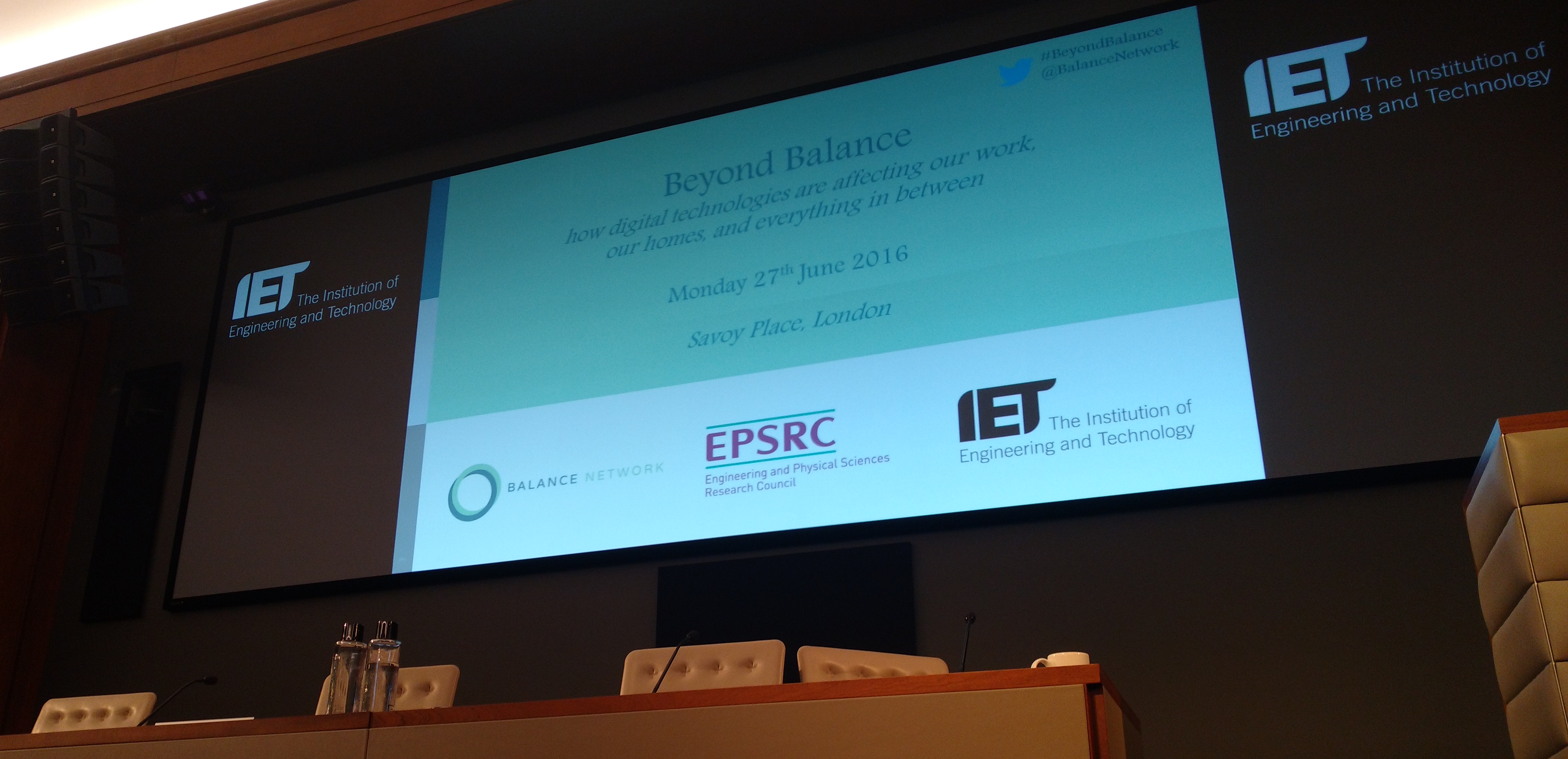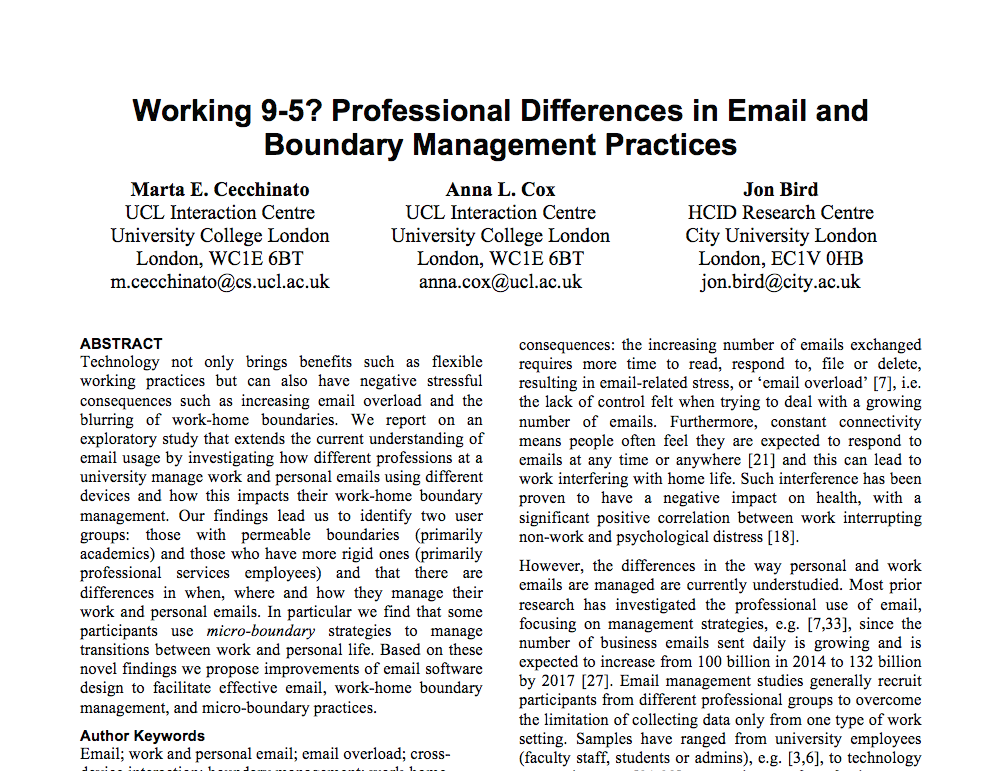Last week, at the Beyond Balance conference, in his closing keynote Oliver Burkeman argued Against Productivity.
He started off framing his views around the popular idea of limitless in time and positive thinking, according to which we can do anything. And as a result, we worship busyness (quoting Tim Kreider’s busy trap), which we can only keep up with if we fail at it. How? Take that email you received last week, and still have not replied to. You know it’s there, you know you should have done something about it, but actually, realistically speaking, your colleague has already emailed someone else to ask for their help, so, yes you failed at replying, but actually you can cross it off the list. Done.
And why are we so busy? Why do we seek to have our agenda’s packed? Is it because other people send us too many emails? Or because we have so many notifications that we are constantly distracted? Isn’t distraction an internal drive? We seek to be distracted, even without technology. Notifications are just a catalyst.
Why? The answer lies in thousands of years of philosophy and the quest for immortality. Nietzsche sums this up nicely: “We labour at our daily work more ardently and thoughtlessly than is necessary to sustain our life because it is even more necessary not to have leisure to stop and think. Haste is universal because everyone is in flight from himself.” Busyness is a distraction from mortality. So yes, in our ideal world we strive for a decluttered life à la Marie Kondo, a 10,000 step driven Fitbit mobility, to get all things done because Tim Allen said so, while web blocking any kind of social media. But if you do tick all those boxes, you will have done everything on your to-do list. And then? Then you are free to die. Sad truth.
This seems like the perfect moment to present a solution. Unfortunately, as Thomas Sowell claims, “there are no solutions, only trade-offs”. That’s why we are trying to make the best use of time, filling up every gap, every bottle in on a conveyor belt. Rather than a solution, Oliver offered his lessons learnt, through trial and error, reading and reflecting. And like all good things it comes in threes
1. Reflect on the effort vs. output discrepancy.
When we reach home after a long day in the office, tired, we think we have had a productive day. We are feeling drained because we must have put so much effort into the day. Yet, looking back, all we did was a couple of meetings, replied to a dozen emails, read a report and crossed off only the small tasks on our to-do list. Measuring our work based on output instead might help us better prioritise energy and resources.
2. Understand the sense of rhythm.
By using metaphors like machine or computer to described human behaviour, we are essentially extracting ourselves from the social environment. There is a social rhythm to our lives that should be synchronised to produce more efficient outputs. Modelling the Scandinavians, there is this idea of time as a networked good, where all employees of the same company take a break at 3pm to share a coffee, a pulla (cinnamon bun) and chat together, regardless of hierarchies. If we all have the same days off, like Sabbath, we can all enjoy our free time free of guilt. And that’s probably why most people enjoy Christmas holidays, because we are all on a break, contrary to the rest of the year.
3. Stop using a to-do list*.
To-do lists fuel the fantasy of doing lots of things, which leads to bad time decision, such as procrastinating, writing down tasks which we’ve already done just to be able to cross them off, tricking ourselves that we can do everything.
*for those of you in fear of forgetting things without a to-do list, try the 5 element strategy. You can only have 5 tasks on your to-do list at any given time. A new task can be added only if an old one is crossed-out.
If this doesn’t work for you, you can always try Harriet Minter’s strategy of #fivethings: every Sunday she posts five things she wants to achieve the following week and through the power of social media (Instagram) and peer support, she and anyone who has joined her challenge reports back the following Sunday.



2 Comments
What ICT can do for work-life balance – Marta E. Cecchinato · 7th July 2016 at 9:17 am
[…] we hop on a train to attend a meeting in another city in person, we pack our days and to-do lists to feel busy. Always on the go. So naturally, if we are running around all day, always connected, always […]
What ICT can do for work-life balance · 27th April 2017 at 4:35 pm
[…] we hop on a train to attend a meeting in another city in person, we pack our days and to-do lists to feel busy. Always on the go. So naturally, if we are running around all day, always connected, always […]